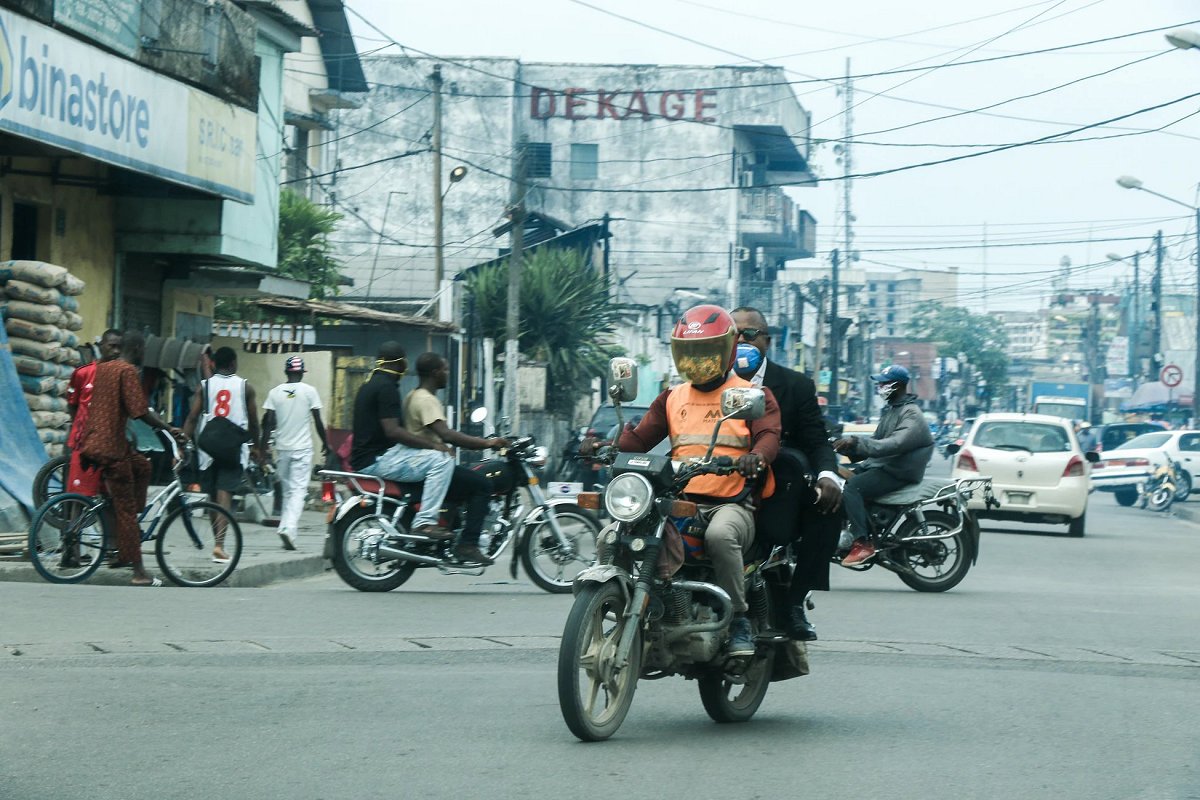The quality of life in Douala
The harmful effects of congestion
Ntongwe Clovis Mbong reports for Favas.net on the quality of life in the city of Douala (Cameroon), particularly on his investigation into the harmful effects of traffic congestion. Douala being the economic capital, largest, and most populated city in Cameroon with a current population of over 3.5 million and an area of over 200 km2 is heavily affected by traffic and congestion especially at peak hours. Rapid population growth together with high demand of transportation indirectly contributes to the increasing number of means of transportation that eventually causes traffic congestion. Thus, affect the quality of life.
Case study
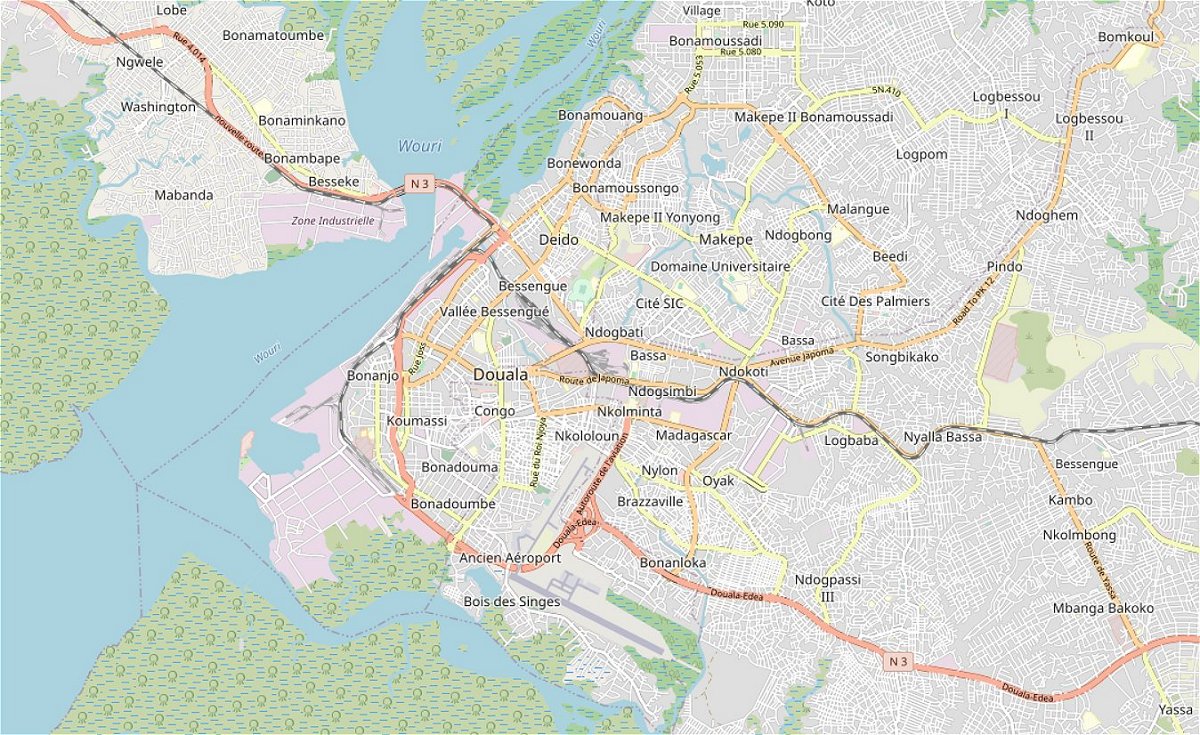
This report, based on the original research (Ghent University, Belgium, October 2020 – January 2021), addresses our case study which is focused at congestion peak points, especially during rush hours at ‘Carrefour Ndokoti’ (see title image above), as well as ‘Round Point’ and ‘Bonaberi Road’. The latter passes through the river Wouri bridge and connects to the round point Deido Junction, then gets to Carrefour Ndokoti at the city centre (see map).
Besides some open data, our study-method was based on a site survey strategy and entailed a primary collection of relevant data through sampling of questionnaire with response from 384 respondents. The survey was elaborated as a questionnaire that consisted of well selected questions regarding traffic congestion issues that threaten the quality of life in the city.
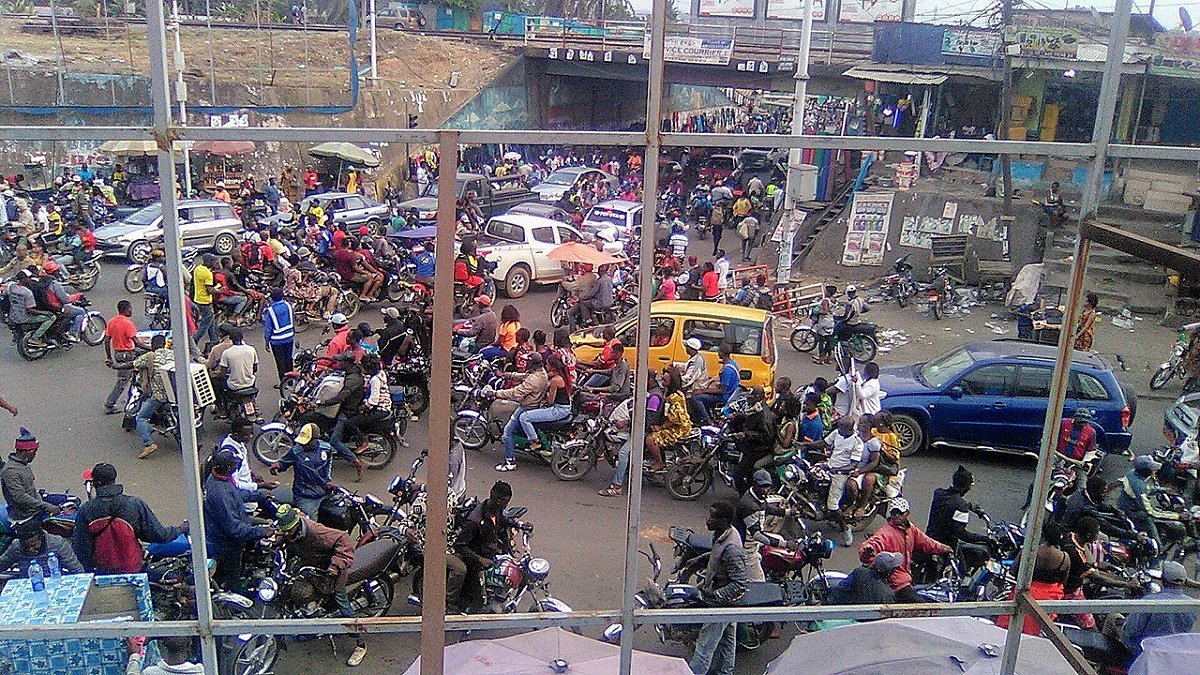
Survey
From the 384 questionnaires sampled, 80% of the respondents are car users and working in both public and private sectors. Unfortunately non-car uses and non-car owners are under-represented in this regard. Nevertheless, the findings are consistent with our on-site analysis. Based on the respondence’s responds through the sample questionnaire we concluded that the major considered causes of congestion are narrow and inadequate existing roads, the poor design and maintenance of roads. Moreover, the way of usage exacerbates the unfavorable characteristics of urban infrastructure, such as bad attitude of hawkers and poor packing of vehicles, ultimately leading to many accidents. In particular we observed that the poor road network and the lack of adequate maintenance are high contributing factors to traffic congestion especially in the urban areas of our cases – e.g. Carrefour Ndokoti. Obviously, these typical nodes in Douala’s road network affects daily city activities and generally the quality of life. For instance, this became clearly visible in our questionnaire where 95% of the interviewed strongly confirmed the statement ‘Most (about 70%) of the inhabitant face difficulties to meet up daily activities due to traffic congestion in Bonaberi , Round point and Ndokoti’.
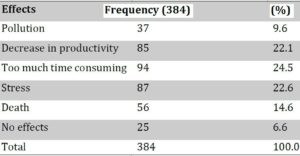
The participants in our survey confirm various effects of traffic congestion, such as pollution, loss of time and personal stress. The high number of road deaths is also recognized. To conclude, the harmful impacts of traffic congestion on the quality of Douala city life is greatly felt.
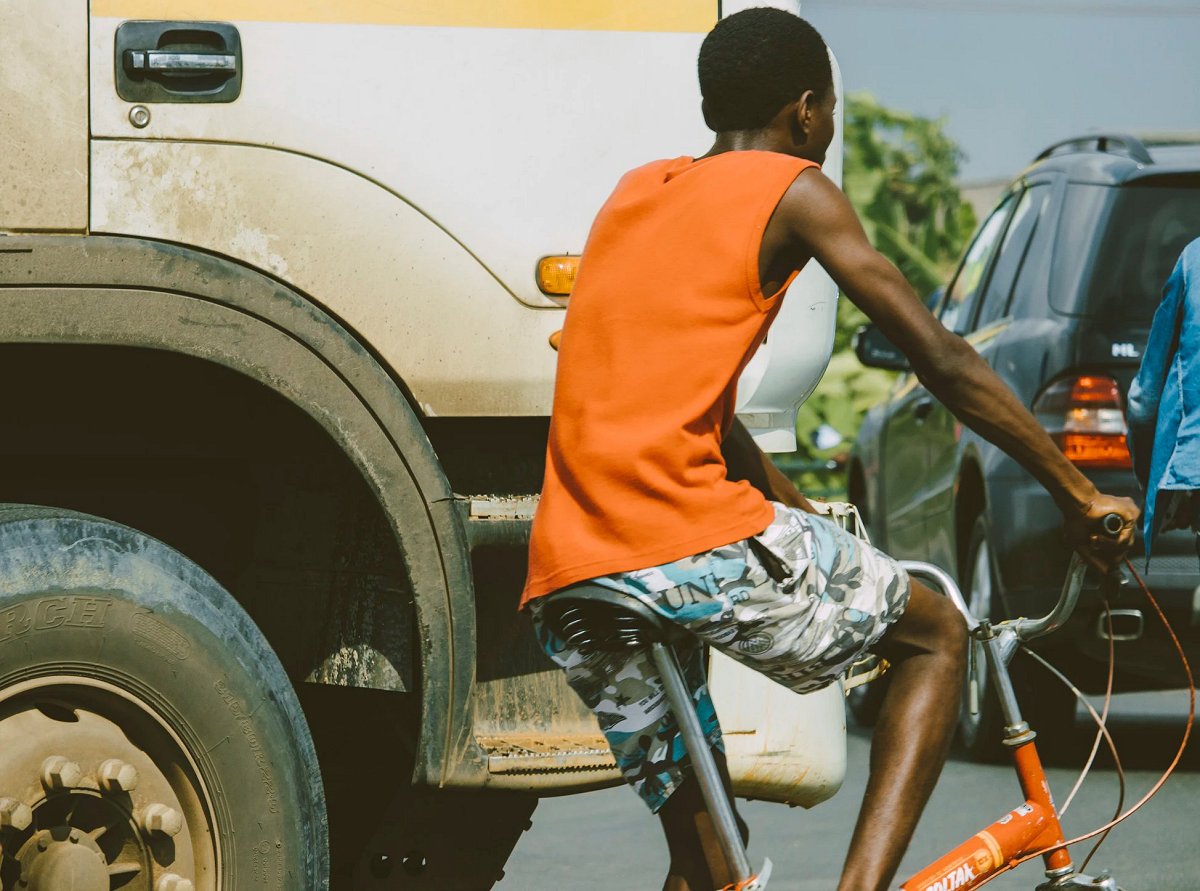
Recommendations
Based on the findings regarding the congestion situation in the case study areas in the city of Douala, we strongly recommend the improvement of mobility management in the short term and the transition toward sustainable urban mobility planning in the long term. Also, a modal shift should be encouraged to other modes of transport, in particular public transport and bicycles. Furthermore, the roadside business activities should be discouraged.
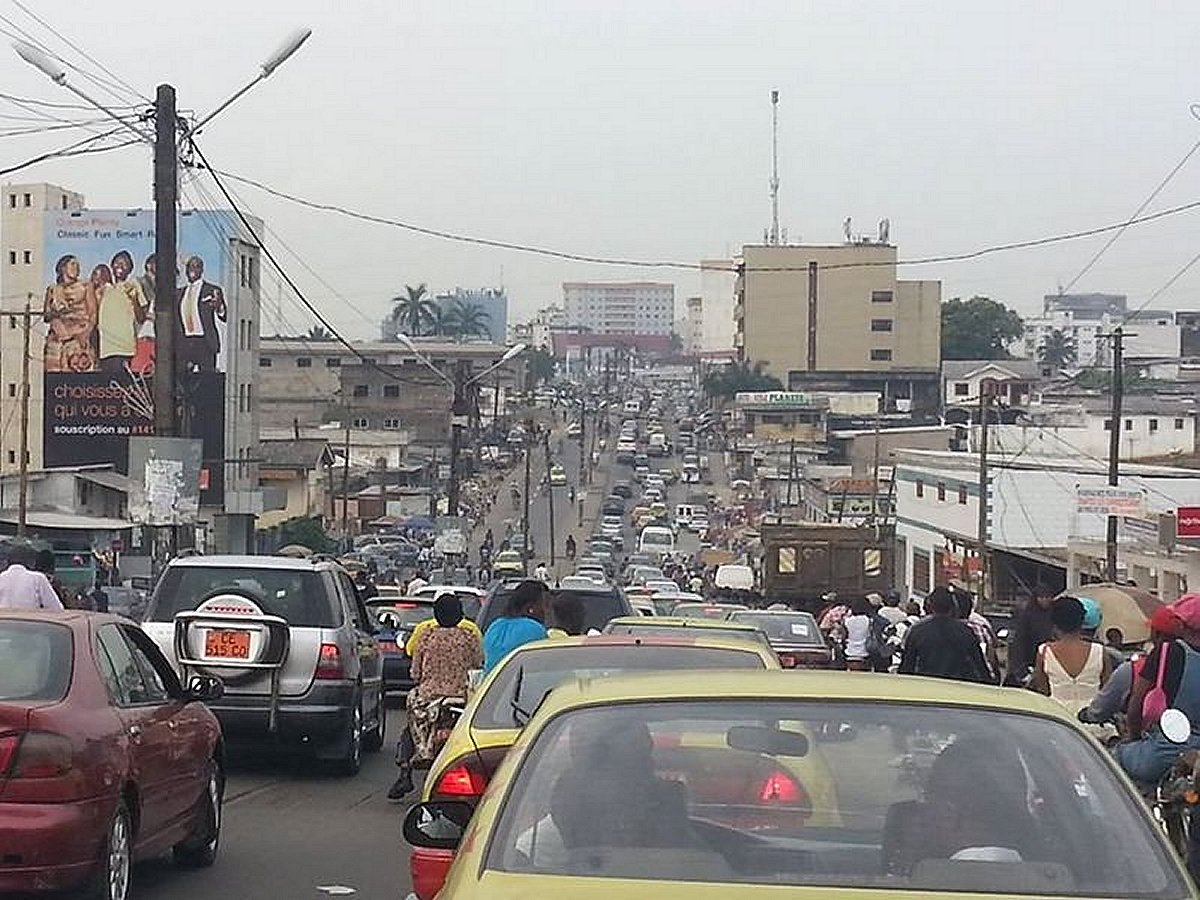
Report: Ntongwe Clovis Mbong
Editing: Favas.net (Rob van der Bijl)
Map: courtesy Open Street Map.
Image Carrefour Ndokoti: Kondah – https://commons.wikimedia.org/wiki/File:Carrefour_Ndokotti_%C3%A0_Douala_Cameroun_10.jpg
Image Douala Traffic Congestion: Guaka – https://commons.wikimedia.org/wiki/File:Douala-traffic-2014.jpg
All other images in this report: Edouard Tamba.
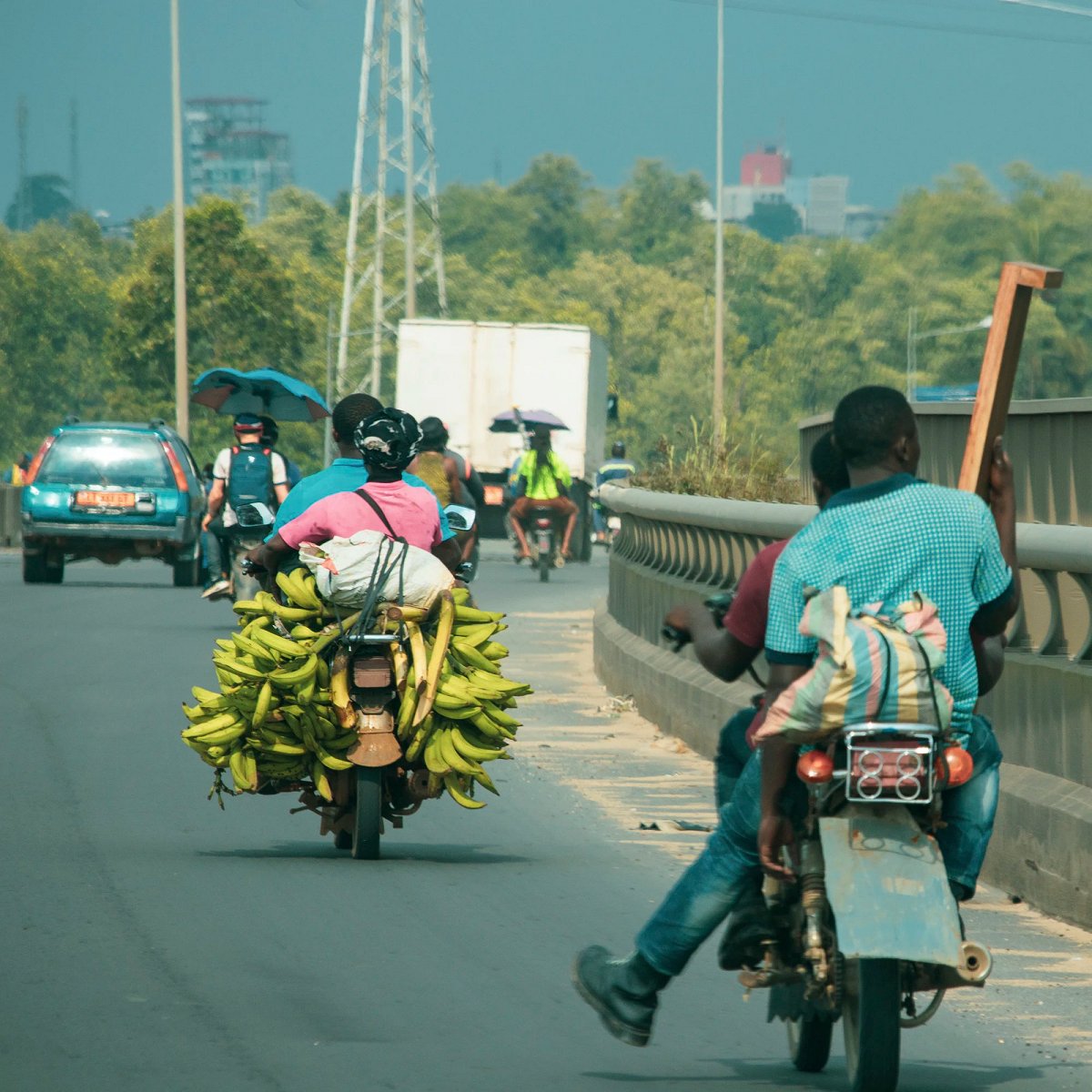
Data and material used in this report by Ntongwe Clovis Mbong are obtained from on-site survey in Douala (Cameroon), as well as secondary sources/resources.
The report and underlying research by Ntongwe Clovis Mbong is based on the Course ‘Mobility & Space’, supervised by professor Rob van der Bijl, Ghent University (Belgium), 2020-2021.
See also:
Njimanted, Godfrey Forgha and Mbohjim Othniel Mobit (2013/2014). Determinants of Traffic Congestion in the Metropolis of Douala, Cameroon: An integrated approach. REVUE DE L’ACADEMIE DES SCIENCES DU CAMEROUN Vol. 11 No. 2 & 3 (2013/14).
